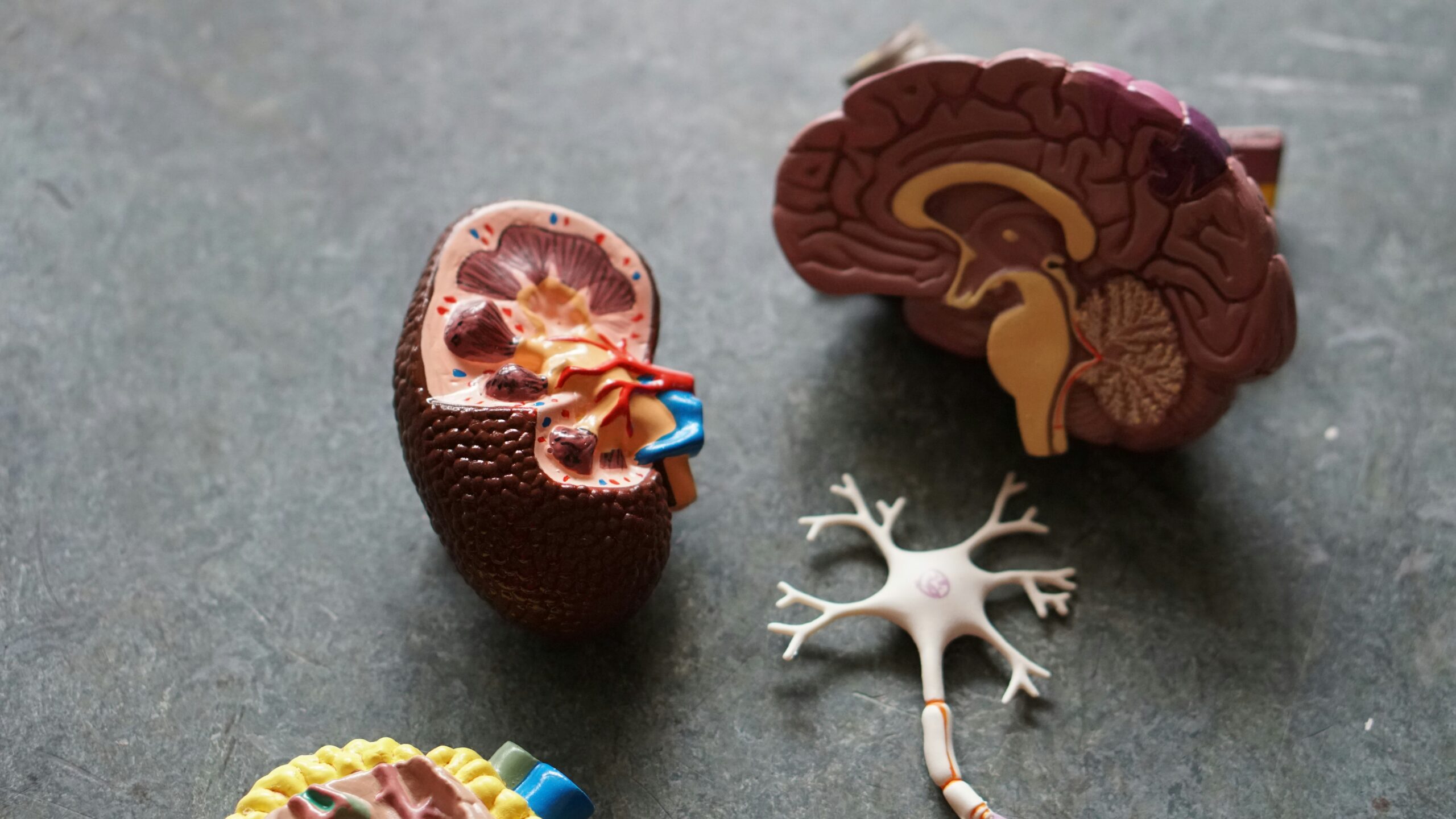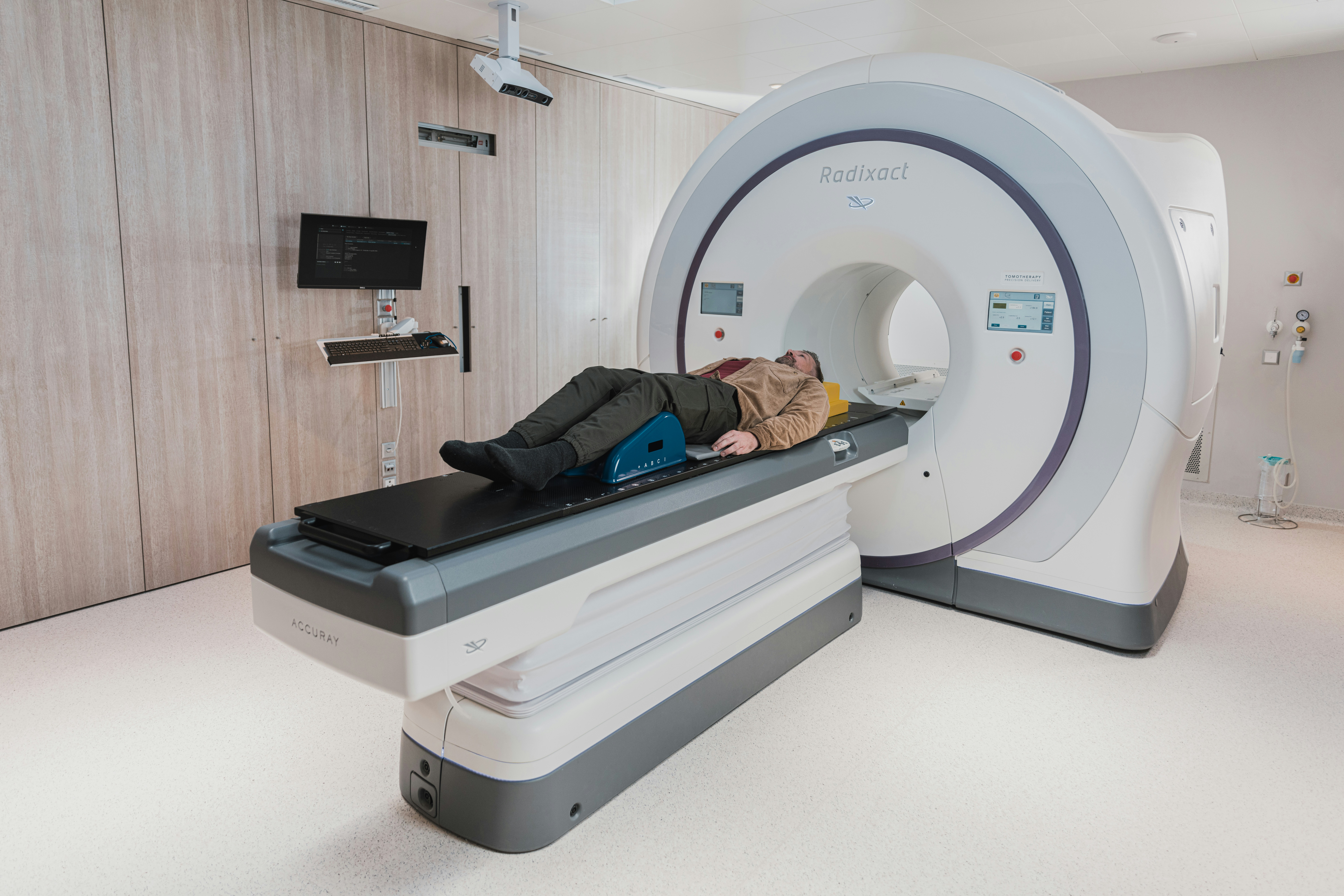Nerve pain, which specialists call neuropathic pain, may be a complex and regularly troublesome condition emerging from harm to the nervous system. This torment significantly differs from other forms, such as nociceptive pain, when tissue is inflamed or inflamed. Numerous individuals portray nerve pain as a sensation of burning, shooting, or cutting. It causes feelings of numbness or shivering that can meddle with everyday exercises and, at times, be overpowering to bargain with.
Nerve pain functions in a complicated way. If nerves are harmed or failing, they transmit erroneous signals to the brain. Different components, such as diabetes, sicknesses like shingles, or accidental wounds, can cause these side effects. The pain can endure even after the initial damage has mended, and frequently, there's no self-evident explanation for its continuous presence. This persistent nature makes nerve pain especially troublesome to treat.

Nerve pain, or neuropathic pain, happens regularly in individuals. Be that as it may, the recurrence of this kind of torment shifts depending on the group being watched and how therapeutic experts decide its presence. It is accepted that 3 to 17 out of every hundred people![]() experience nerve pain at some point. Despite the fact that the rate appears little, considering the overall worldwide populace, it means that a vast number of individuals are influenced.
experience nerve pain at some point. Despite the fact that the rate appears little, considering the overall worldwide populace, it means that a vast number of individuals are influenced.
Numerous people who have diabetes regularly suffer from torment in their nerves, and studies show that neuropathy might influence half of the individuals with this illness. Additionally, sicknesses like shingles and multiple sclerosis, as well as harm to the spinal cord, are connected with the next frequency of nerve-related torment.
Nerve pain can happen at any time in life, but it is more common in more seasoned individuals. As one age, the probability of creating infections that can harm nerves, such as diabetes or shingles, increases. This makes nerve torment a critical concern for the maturing populace.
It is additionally critical to consider long-lasting nerve pain. Certain people may encounter brief nerve pain from damage or sickness. However, others might confront such torment over an amplified period, or it may seem more than once to happen. Managing long-term nerve pain is troublesome and can affect the quality of someone's life.
It is common to hear individuals complaining about nerve pain in therapeutic offices. Numerous who look for treatment at torment clinics or consult with neurology specialists are looking to offer assistance with this sort of distress. Healthcare specialists must recognize and oversee nerve torment well to improve patient results.

Nerve or neuropathic pain happens when the nervous framework is harmed or has a few issues. There are various causes of this type of torment, and each one unexpectedly affects the nerves.
Numerous times, if an individual has diabetes, it can cause torment in their nerves. High blood sugar for long periods may gradually harm the nerves and lead to a condition called diabetic neuropathy. Hurt to these nerves frequently influences the legs and feet, causing torment, a sensation like shivering, and a reduction in feeling.
Contaminations can moreover lead to nerve pain. For case, shingles, caused by a varicella-zoster infection, can result in extreme nerve torment, known as postherpetic neuralgia. Indeed, after the rash from the shingles has vanished, the awkward feeling can last for a long time, perhaps months or a long time.
Vehicle mishaps or falls can hurt nerves, driving to prompt inconvenience or torment that creates afterward. Surgeries that accidentally harm nerves can too cause neuropathic torment.
Certain afflictions are too connected to nerve pain. Conditions like multiple sclerosis, which influences the central nervous framework, might cause this sort of torment since they hurt the defensive covering of nerves. Additionally, spinal cord wounds can disturb nerve signals, driving to unremitting torment.
Chemotherapy, utilized to treat cancer, habitually causes peripheral neuropathy. The strong drugs in chemotherapy can harm the nerves, causing torment and shivering or, at times, a misfortune of feeling, primarily within the hands and feet.
Liquor addiction, moreover, plays a portion. Drinking liquor for numerous years can lead to not having sufficient supplements, basically B vitamins, which are important for keeping nerves in great condition. This insufficiency can cause alcoholic neuropathy, coming about in nerve torment and shortcomings.
Moreover, sicknesses where the body's immune framework erroneously attacks itself, like lupus or rheumatoid joint pain, may cause nerve torment. In these cases, the resistant reaction erroneously assaults parts of the body, such as nerves, causing sensations of torment and inflammation.

A common term for nerve torment may be a burning feeling. Individuals frequently depict this burning sensation compared to their skin or muscles on fire. In some cases, the burning feeling remains consistent and does not vanish; other times, it may go absent but return later. The consistent nearness or irregular nature of the burning makes finding alleviation troublesome.
A more common way to explain this is shooting or cutting pain. It might feel like fast, sharp electric stuns moving the body's interior. The jolts are not continuously predictable; they can happen abruptly and cause extraordinary inconvenience.
Moreover, you'll experience a feeling comparable to shivering or “pins and needles.” Typically, like when your arm or leg gets numb from not being moved for a little time, be that as it may, the sensation may persevere longer and be more grounded. It might concentrate on as it were one portion or spread over diverse body regions.
A few people who have nerve pain might experience numbness. As a rule, numbness demonstrates a loss of sensation within the affected zones, related to an unordinary feeling of being stifled. It can make it difficult to see touch or changes in temperature and increase the helplessness of wounds.
Allodynia![]() , or pain from delicate touch, implies that slight contact, like a feather's touch, can cause distress. It can make straightforward exercises such as touching your dress or feeling a breeze unpleasant experiences. The increased affectability coming about from allodynia may significantly influence day-by-day assignments.
, or pain from delicate touch, implies that slight contact, like a feather's touch, can cause distress. It can make straightforward exercises such as touching your dress or feeling a breeze unpleasant experiences. The increased affectability coming about from allodynia may significantly influence day-by-day assignments.
In expansion, hyperalgesia![]() is when an individual reacts too much to something that ordinarily causes torment. A minor injury or touch that may be awkward causes intense torment.
is when an individual reacts too much to something that ordinarily causes torment. A minor injury or touch that may be awkward causes intense torment.
The pain may stay tireless, enduring for an expanded period, such as a few months or, indeed, a long time. It could vary in concentration and sometimes intensify at night, leading to sleep disturbances and exhaustion.

To analyze nerve or neuropathic pain, a specialist must perform different activities. They tune in to what the persistent has been through therapeutically, do a physical checkup, and utilize numerous tests to discover what's off-base. Specialists utilize this point-by-point preparation to find the origin and nature of the torment.
A total well-being history must be collected to determine the reason for nerve torment. Specialists will ask patients about their side effects, such as what sort of torment they encounter, where it is found, and the concentration of the torment. They will ask about basic well-being issues, like diabetes or sicknesses you've had recently, that may be the source of your nerve torment. It is exceptionally vital to get these things to decide the cause.
Next, medical experts perform a physical examination. While conducting this assessment, they explore for signs of nerve harm, such as numbness, muscle shortcoming, or irregular reflexes. They might utilize devices like tuning forks or little needles to check how the nerves work. This helps to discover out which correct nerves have been influenced.
Doctors regularly utilize specific examinations in addition to body examinations to distinguish nerve distress. Examinations such as Electromyography (EMG) and Nerve Conduction Studies (NCS)![]() are commonly utilized to watch the electrical action in muscles and nerves. These tests can reveal abnormalities in nerve work that can be causing pain.
are commonly utilized to watch the electrical action in muscles and nerves. These tests can reveal abnormalities in nerve work that can be causing pain.
MRIs and CT scans can also be supportive. They give detailed images of the body's interior, which helps doctors decide whether there's any sign of nerve compression or harm conceivably caused by herniated discs or tumors. Imaging is especially valuable when the torment may be due to structural problems.
Doctors might inquire for blood tests to explore for medical conditions like diabetes or vitamin insufficiencies that can lead to nerve torment. By identifying and treating these fundamental issues, the torment can be decreased in some cases.
Now and then, a nerve biopsy might be required, which is when a little portion of the nerve is taken out to examine it beneath a magnifying lens. As it were in some cases, this procedure is done, but in complex cases where other tests don't provide definite answers, this strategy can allow important data.
Doctors may also depend on surveys or rating frameworks that survey torment to determine the effect of neuropathic inconvenience on a patient's everyday life. These devices offer assistance in deciding the seriousness of pain and planning a suitable treatment strategy.

To control nerve pain or neuropathic torment, an individual regularly combines different drugs, numerous treatments, and way-of-life adjustments. Since this sort of pain is troublesome to oversee, applying a few approaches at once is, by and large, vital for change.
Physical therapy could be a pivotal perspective of the treatment process. A master's in physical well-being guides patients through workouts planned to reinforce muscles and improve development. It may diminish the torment and avoid extra harm. Procedures like electrical incitement of nerves on the skin surface, alluded to as TENS, could also be utilized. TENS includes a gadget that sends electrical impulses across the skin to reduce the sensation of pain.
Modifying one's way of life can offer assistance in managing nerve torment. Routinely locking in physical activities, like walking or swimming, improves well-being and diminishes inconvenience. Maintaining a legitimate count of calories is also critical, especially for controlling blood sugar levels in individuals with diabetes. Expanding nutritious nourishment helps in protecting nerve well-being and anticipates advanced harm.
Many people may experience involvment relief when they attempt different medications, such as acupuncture or rub treatment. These techniques can offer assistance relax the muscles, improve blood circulation, and decrease distress. A few patients discover these strategies advantageous when utilized near conventional treatments.
In grave circumstances, therapeutic experts might prescribe more intrusive methods. Injecting anesthetics or corticosteroid drugs near the influenced nerves constitutes a nerve piece, briefly easing torment. Another option might be to fortify the spinal cord. It includes inserting a gadget that sends electrical impulses to the spinal cord, which then blocks the pain signals.